
Apple cider vinegar certainly is a useful thing to have around. I make my own from our apples. And I use it in an almost endless list of ways, inside and outside my home.
Actually, I’ve made two different types – I’ve made an apple scrap vinegar (using cores or windfalls). And I’ve made a ‘real’ apple cider vinegar by making apple cider with my fruit press, then making vinegar from that.
Both are useful in different ways.
Cheryl has put together this easy tutorial showing you how to make your own apple scrap cider vinegar.
I use apple cider vinegar to fend off colds, on salads, on my hair, to clean household surfaces. And – yes – in my garden. For culinary use and around my person, I use ‘real’ apple cider vinegar. But for cleaning and other uses, the apple scrap vinegar seems perfectly fine.
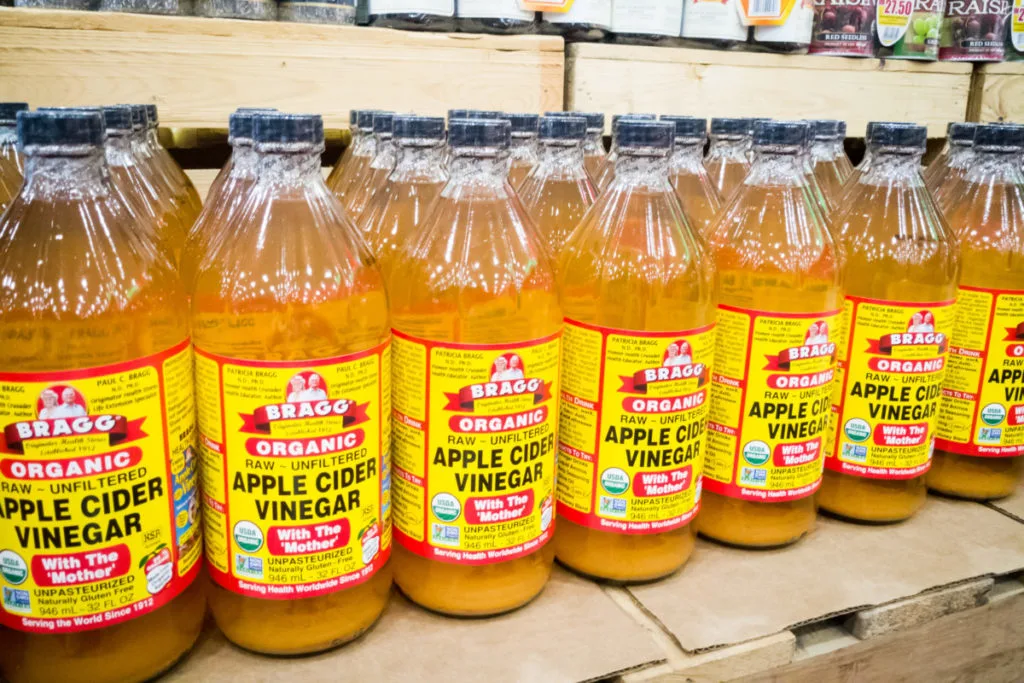
If you don’t make your own, you can buy it. But be sure to find raw, organic apple cider vinegar. If it’s not raw and organic, it won’t have nearly as many benefits. Before I had my own apple trees, I used Aspalls. Try to find one with the ‘mother’ still in it.
Once you’ve made or sourced your apple cider vinegar, here are ten uses for apple cider vinegar in your garden.
1. Use Apple Cider Vinegar in Liquid Fertilizers For Your Plants
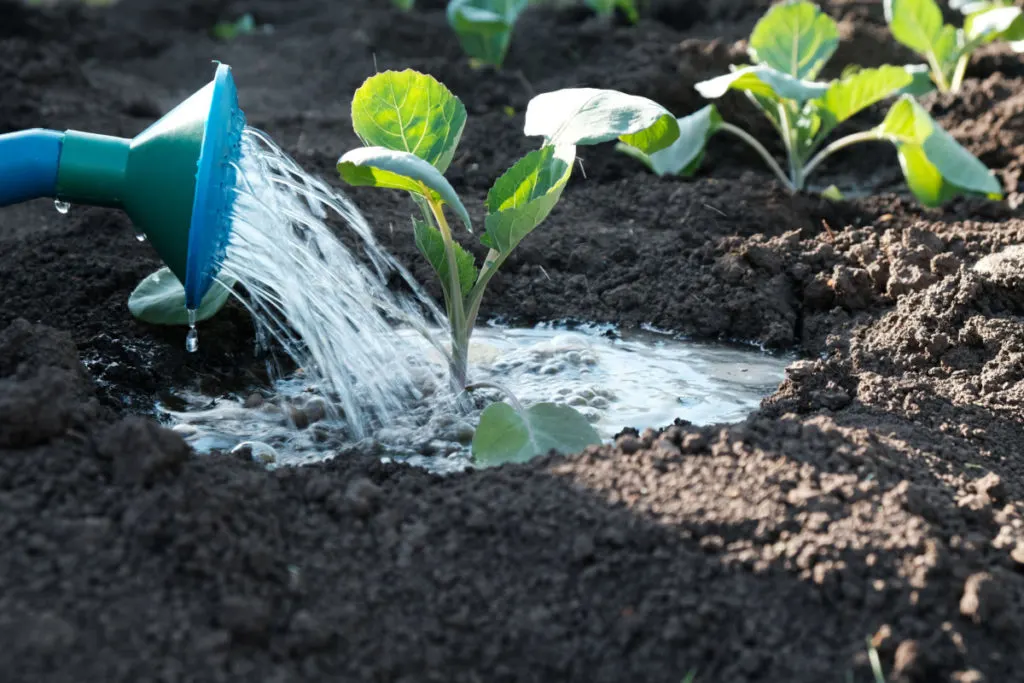
Apple cider vinegar is packed with beneficial nutrients – not just for us, but for plants too. Apple cider vinegar is far less acidic than, for example, a typical white vinegar. But it’s still acidic in nature. So a little goes a long way.
Use too much and it will kill your plants. Add 5 oz of ACV to a 5-gallon bucket. Stir it well, then use this mix to add fertility for certain plants. Those that like slightly acidic conditions will enjoy this liquid fertilizer. This is especially true if your soil is slightly on the alkaline side.
2. To Make Soil a Little More Acidic
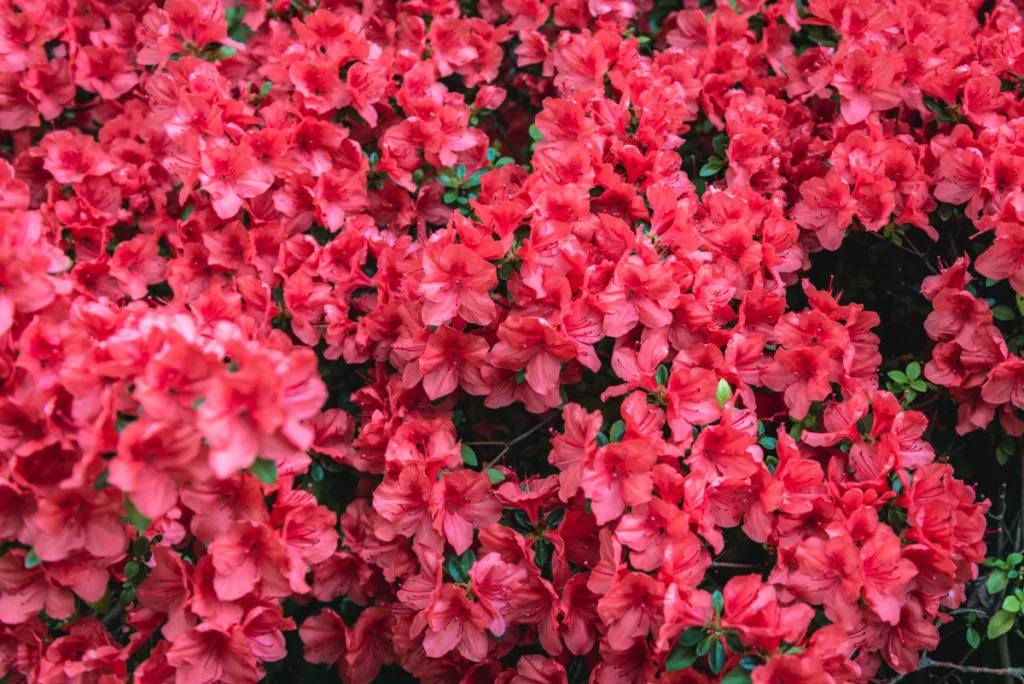
If you have neutral soil, add one full cup of ACV to a gallon of water and add this mix to the soil around acid-loving plants. Plants that might like this treatment include blueberries, cranberries, heathers, rhododendrons, camellias and azaleas.
You can also pour some apple cider vinegar into a composting system along with other acidifying organic materials to make an acidic compost/ potting mix.
3. Using AVC To Repel Pests
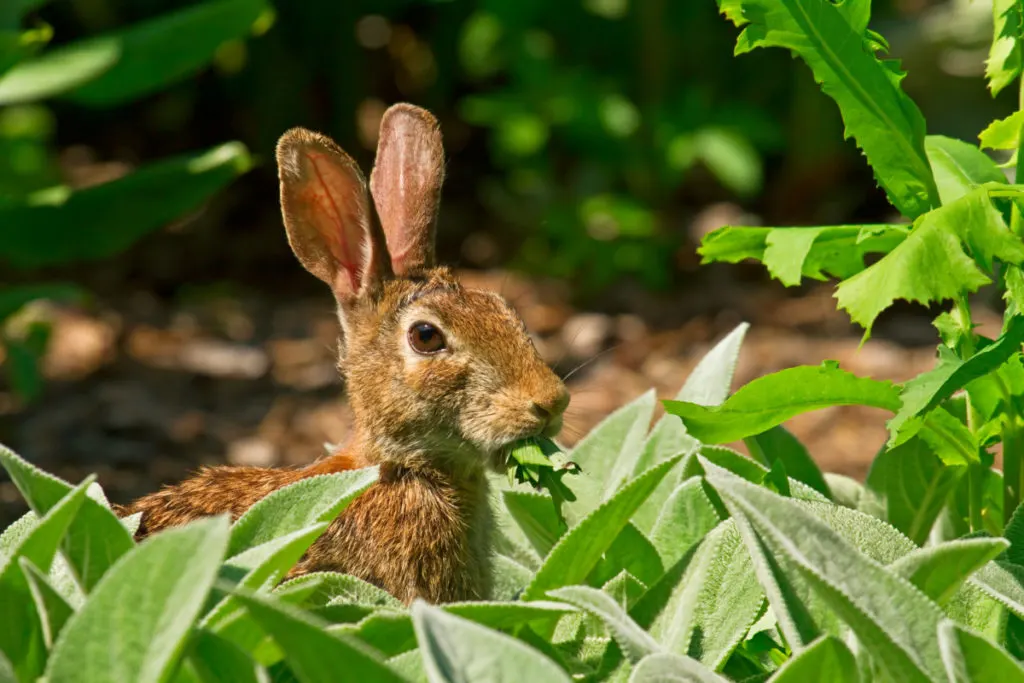
A number of browsing mammals like rabbits and deer don’t particularly like the smell of apple cider vinegar. Though I certainly don’t think it will keep them away all together, it might encourage them to browse elsewhere.
Soak rags in ACV and leave them around the edges of your growing areas, and this may encourage these pests to go elsewhere. Remember, you’ll need to re-soak these rags on a regular basis.
4. In Traps for Common Garden Pests
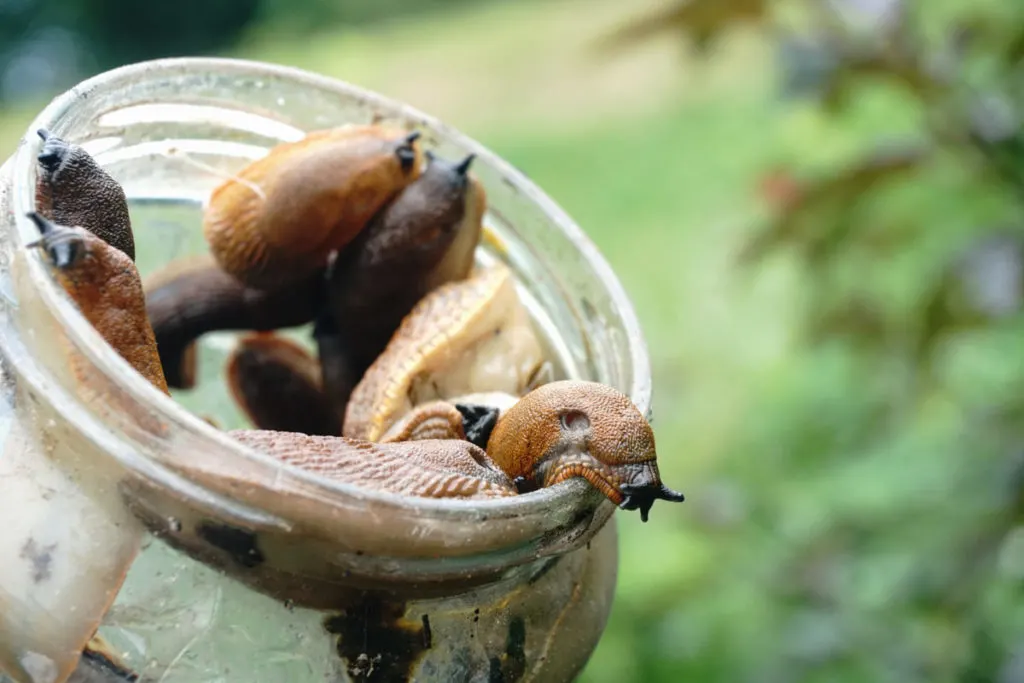
Prevention is always better than cure. And you should aim to naturally keep pest numbers down through companion planting and wildlife attraction. But if you get an imbalance, and have bumper numbers of slugs or fruit flies, you can use apple cider vinegar in traps to catch them.
5. Use Apple Cider Vinegar To Clean Glass Greenhouse Panes
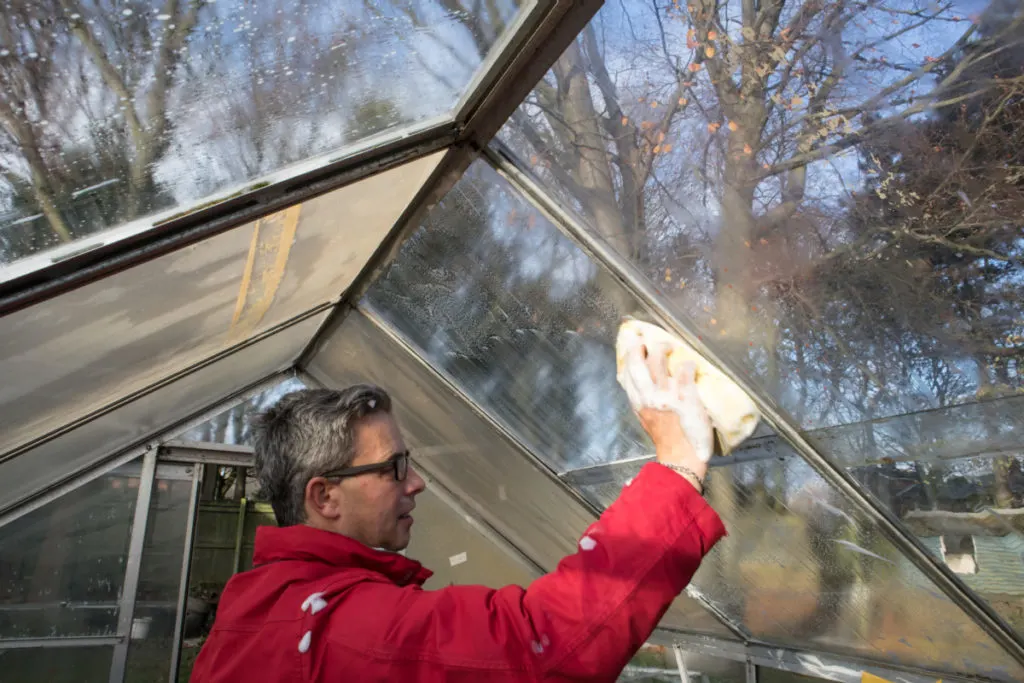
Just as you can use apple cider vinegar to clean the windows of your home, so too you can use them to clean a glass greenhouse. Make a solution of 1/3 ACV, 2/3 water, and use this solution to keep glazing streak free and free from mold.
6. Clean Garden Tools
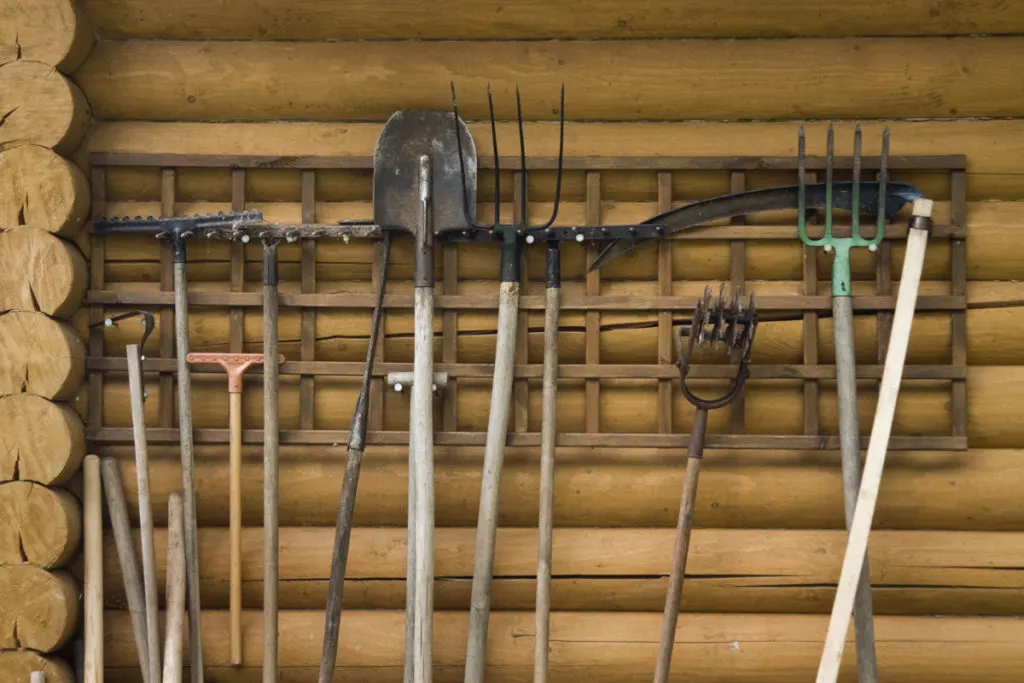
Apple cider vinegar can also be used to clean up old, dirty, rusty garden tools. Soak the metal tools in vinegar overnight, then give them a scrub with a paste blended from ACV and baking soda to get rid of what’s left. This is a gentle yet often very effective way to give old metal tools a new lease of life.
7. Clean Clay Pots and Planters
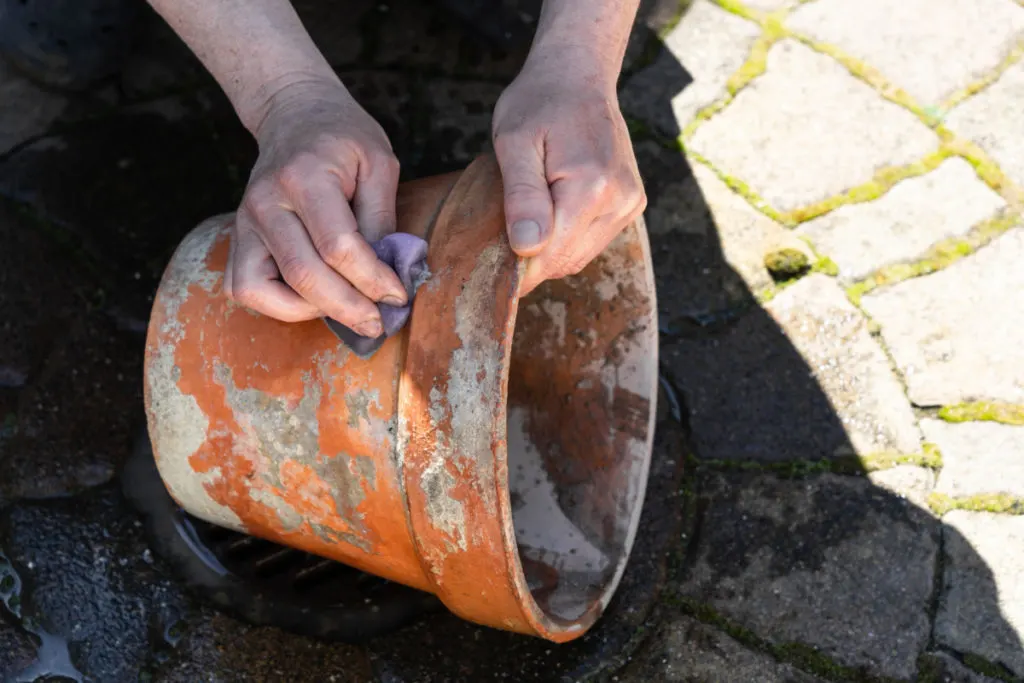
You can also use apple cider vinegar to gently clean old, blemished plant pots and planters. Wipe the surface of each pot with apple cider vinegar, then leave them to soak overnight in vinegar to get rid of any stubborn stains.
You can use this on other types of pots and containers too, to make the most of the antibacterial properties of this substance. Cleaning all your pots and containers well can help prevent the spread of plant pathogens and keep your garden growing strong.
8. Using ACV In Your Chickens’ Water
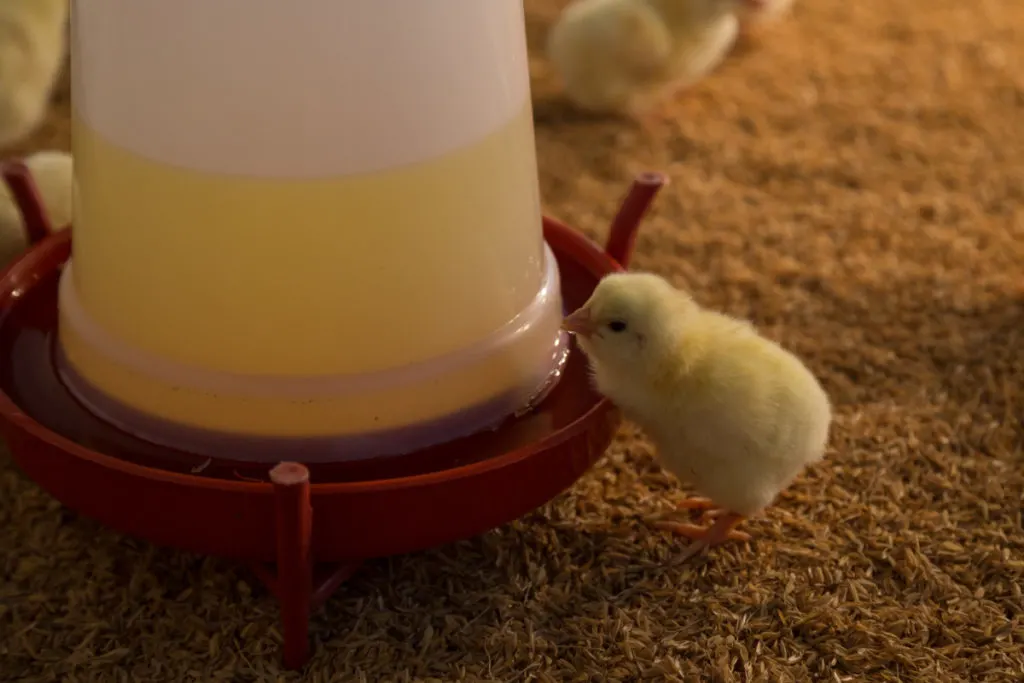
Before I make this point – let me be clear. There is actually very little conclusive scientific evidence that ACV in chickens’ water is good for their health. But a great many very experienced chicken keepers swear by it, and that anecdotal evidence is enough to recommend the practice to me.
We do sometimes add it to our chickens’ water as a supplement, and while I can’t scientifically prove it, I do feel it does them good. The vinegar should be diluted to a around 2% in drinking water. (20 ml in every litre).
ACV is believed to be beneficial because it has antiseptic and mild antibiotic action, gets rid of worms/ parasites, gives them beneficial nutrients, and is even said to help reduce stress. While many of the claims commonly made online have not been verified, years of chicken keeping experience seem to tell us that supplementing with ACV can do some good.
9. Using Apple Cider Vinegar as a Supplement for Other Livestock
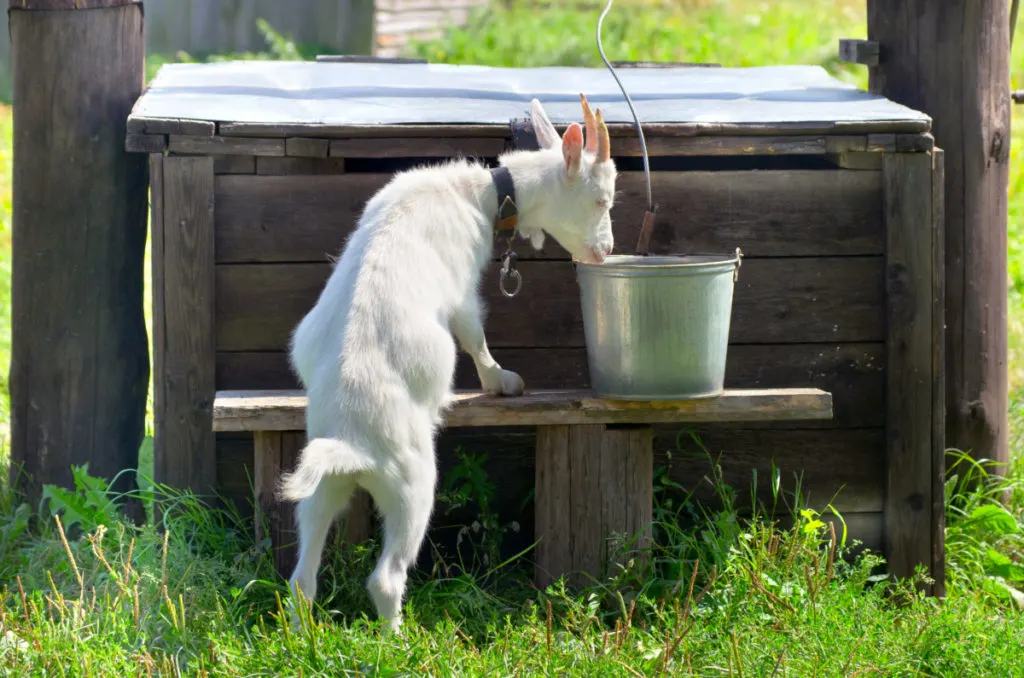
Scientific evidence is building for the idea that ACV is a great supplement for a range of other livestock too. Goats (who benefit from the phosphorus in particular), sheep, pigs, cattle, and a range of other livestock are also said to benefit in various ways from the addition of this substance to their diet.
10. Using Real Apple Cider Vinegar for Canning and Preserves
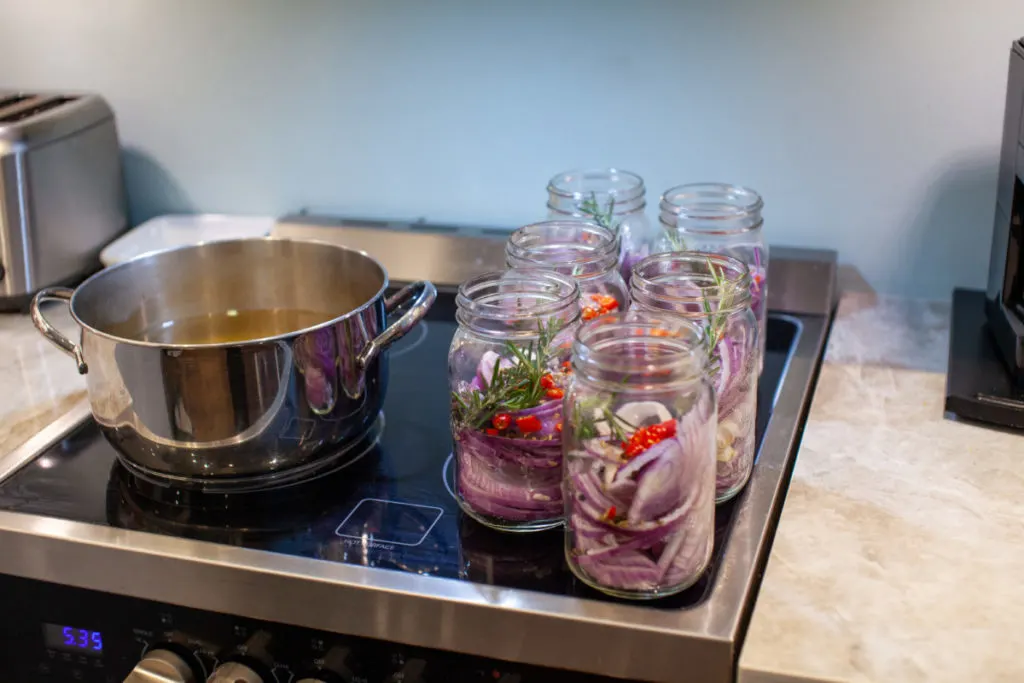
First of all, let me preface this by saying that the acidity levels are important if you plan to use your apple cider vinegar for preservation purposes. Test the pH before you rely on it in canning.
But if you do make a good quality apple cider vinegar (or buy one), it can be used in a wide range of canning and preservation recipes. This is great for the home gardener, as it will help you preserve all the produce that you grow.
These are just some of the many ways that apple cider vinegar can help you in your garden and around your homestead. But once you begin to use it, you’re sure to find many, many more.
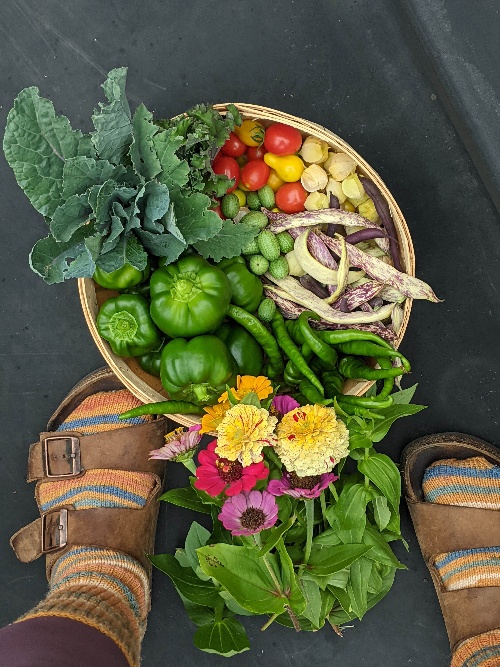
Get the famous Rural Sprout newsletter delivered to your inbox.
Including Sunday musings from our editor, Tracey, as well as “What’s Up Wednesday” our roundup of what’s in season and new article updates and alerts.

